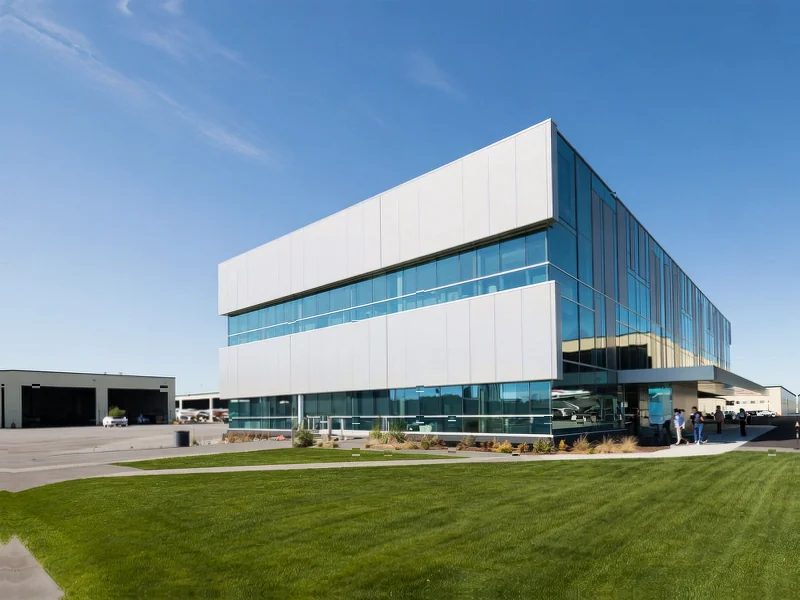According to Aviation Week, global aviation services provider Avia Solutions Group will establish its new regional headquarters at Dubai South‘s Mohammed Bin Rashid Aerospace Hub, with completion scheduled for the fourth quarter of 2027. The state-of-the-art facility will initially accommodate up to 800 professionals and serve as a shared-services center supporting the company’s global operations across ACMI, cargo charters, cybersecurity, and aviation insurance. The development will include an Agentic AI innovation hub designed to attract global talent, marking a first-of-its-kind initiative for the company. Khalifa Al Zaffin, executive chairman of Dubai Aviation City Corporation, emphasized that the move strengthens Dubai’s position as a preferred destination for global corporations, while Avia Solutions Group founder Gediminas Ziemelis noted the location will help attract top talent and enhance operational efficiency. This strategic expansion reflects broader trends in the global aviation services market.
Table of Contents
Dubai South’s Calculated Aerospace Play
The selection of Dubai South represents more than just real estate—it’s a strategic positioning within one of the world’s most ambitious aviation ecosystems. Dubai South encompasses Al Maktoum International Airport, which is positioned to become the world’s largest airport upon completion, handling up to 160 million passengers annually. For Avia Solutions Group, this location provides proximity to future aviation infrastructure that will dwarf current facilities, offering unprecedented access to emerging markets in Africa, Asia, and the Middle East. The timing is particularly strategic, coinciding with Dubai’s broader economic diversification efforts away from oil dependency toward aviation, tourism, and logistics as core growth pillars.
The Evolving ACMI Landscape
Avia Solutions Group’s expansion comes during a period of significant transformation in the Aircraft, Crew, Maintenance and Insurance (ACMI) sector. Post-pandemic aviation recovery has created unprecedented demand for flexible aircraft solutions, with airlines increasingly turning to ACMI providers to manage capacity fluctuations without long-term capital commitments. The Middle East represents particularly fertile ground for this model, given the region’s rapid aviation growth and the seasonal nature of travel demand, especially around religious pilgrimages and major events. By establishing a regional headquarters, Avia is positioning itself to capture market share from regional carriers who may be hesitant to expand their fleets permanently amid economic uncertainty.
Beyond Traditional Aviation Services
The inclusion of an Agentic AI innovation hub signals a strategic pivot beyond traditional aviation services. While the source material mentions this as a talent attraction mechanism, the implications run much deeper. Agentic AI systems—which can autonomously pursue complex goals—could revolutionize aircraft scheduling, maintenance prediction, and route optimization in ways that current AI systems cannot. For an ACMI provider managing dozens of aircraft across multiple time zones and regulatory environments, this technology could provide competitive advantages in operational efficiency that translate directly to profitability. The challenge will be attracting the specialized talent needed to develop these systems in a region not traditionally known as an AI development hub.
The Regional Headquarters Rush
This announcement follows a broader trend of multinational corporations establishing regional headquarters in Dubai, partly driven by Saudi Arabia’s recent policy requiring international companies to base their regional headquarters in the kingdom to secure government contracts. Dubai’s response has been to aggressively court these companies with superior infrastructure, lifestyle appeal, and business-friendly regulations. For aerospace companies specifically, the clustering effect at Dubai South creates synergies that individual locations cannot match—from shared MRO facilities to collaborative training programs and streamlined regulatory processes.
Execution Challenges Ahead
The 2027 completion timeline presents both opportunities and challenges. While three years allows for careful planning, the aviation market can shift dramatically in that timeframe. The facility’s success will depend on Avia’s ability to accurately forecast demand patterns that may look very different post-2027. Additionally, attracting 800 professionals—particularly in specialized fields like cybersecurity and AI—will require competing with established tech hubs in Europe, North America, and Asia. The company’s chairman and leadership team will need to develop compelling value propositions beyond financial incentives to draw top global talent to Dubai.
Shifting Competitive Dynamics
This move will likely trigger responses from competing ACMI providers and aviation service companies. The Middle East has traditionally been dominated by local champions like Emirates, Etihad, and Qatar Airways, with international service providers playing supporting roles. Avia’s substantial investment signals a more aggressive approach to capturing market share directly. We can expect other global aviation services companies to reassess their Middle East presence, potentially leading to further consolidation or partnership formations as the region’s aviation ecosystem matures and becomes more competitive.
Related Articles You May Find Interesting
- Windows 11 De-Enshittification: Can Tiny11 Builder Deliver?
- Young Sun’s Super-Eruption Reveals Secrets of Early Solar System
- UNC’s AI Gambit: Why Universities Must Adapt or Risk Irrelevance
- AI Solves Ribosome Stalling to Boost Sustainable Protein Manufacturing
- GitHub’s Agent HQ: The Enterprise AI Orchestration Play



